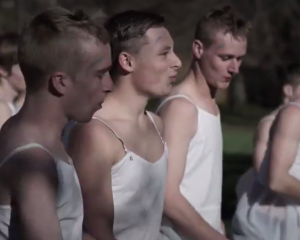Criticisms from a University of Otago council member about the perceived bias of media when reporting about student disciplinary matters appear out of touch with the tertiary institution's own restrictive communication policy.
A report on student disciplinary incidents is to be tabled at a meeting of the university council today, three months after the head of the institution's disciplinary appeals board raised personal concerns about how such matters were not being followed up appropriately by media.
The report is to be discussed behind closed doors at a public-excluded session of the meeting, despite previous assurances that such disciplinary matters would be open to media.
Retired youth court judge Oke Blaikie raised his concerns at a council meeting in November, shortly after a majority vote from members to double the maximum amount of fines which could be imposed on students found to have committed a serious breach of the university's code of conduct.
Student-elected council members Katie Reid and Jonathan Rowe both voted against the move and questioned why fines from the proctor would double from $200 to $500, and from the university provost from $500 to $1000.
It had been 20 years since the university's Discipline Regulations Statute 1991 was approved and council members voted to revise the campus act to increase the maximum amounts for fines.
Judge Blaikie believed the fines remained too low and has signalled his intention to push for a further review to increase the maximum amount this year.
Judge Blaikie also said ongoing negative publicity about student unrest and street fires had, in the past, contributed to a negative perception about the university among parents of students.
An increase in reports, late last year, about multiple street fires being lit in the student quarter of North Dunedin were not balanced.
Media were not following up on the disciplinary processes of students found to be responsible for the street fires. Judge Blaikie called for more balanced reporting, which focused on the outcomes of disciplinary hearings for such matters.
This newspaper subsequently requested figures for the number of incidents dealt with by the university proctor and provost and also information about fines being imposed on students found to be in breach of the university's code of conduct.
The information was provided, but not until a senior communications adviser asked if the newspaper would wait until a report on such matters was scheduled to be tabled to the council.
There were also complaints from a university staff member that collating such data to satisfy media requests created extra work for staff outside their usual reporting cycle and a full analysis of the figures regarding disciplinary incidents and fine amounts would be reported to council in February.
The figures provided showed the total amount of fines imposed on students in 2011 was the lowest in five years. There were 136 students fined $10,670 in 2011 for serious breaches of the university's code of conduct, as a result of 529 incidents dealt with by the proctor - a 54% leap from the 343 incidents dealt with in 2010. The proctor imposed 393 non-monetary penalties - about 74% of the total incidents dealt with breaches of the university's code of conduct - an outcome the Otago University Students Association wants to see continue rather than a blanket increase in the amount of fines.
While it would not be the first time welcome suggestions raised at a governance level in any organisation have not necessarily reflected the realities of how such policies are handled on a day-to-day basis, the decision to keep the contents of the disciplinary report away from the public seemingly reflects a tendency of university department heads to shelter behind increasing layers of bureaucracy.
A much-touted new era of collaboration between the university and the OUSA, brought about by the legislative change to introduce voluntary student membership, has been accompanied by a lift in the requirements of student bodies to be more transparent and accountable.
However, whether the university operates on a similar level of transparency, openness, and accountability in the way it disciplines students is arguable, especially when discussions on the matter take place behind closed doors, removed from media efforts to report on the outcomes.









